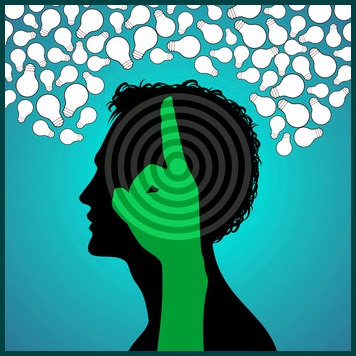| Back to Back Issues Page | ||
 |
||
|
Dr. DeFoore's Healing Anger Newsletter entitled "How Do You Talk To Yourself?" August 15, 2019 |
||
How Do You Talk To Yourself?
|
"When you make your internal self talk positive, you're laying the groundwork for good relationships and success in your personal and professional life." William DeFoore |
Keeping your mind focused on positive thoughts is an excellent way to develop a habit of positive self-talk.
This is not difficult or complicated. You don't have to join any organization, or learn any new words. Just take the steps listed below, and you'll be surprised how fast you start feeling better.

How Do You Change Your Self-talk?
First, you go back to where it all began, then work your way forward to where you want to be.
Now let's go through the step-by-step process:
- Revisit your most powerful emotional experiences, with compassion and understanding for yourself. This actually helps you to heal emotionally, as with inner child work.
- Ask yourself what you concluded from these experiences, about yourself, about the cause of what happened, about other people, and about life in general. Also ask yourself what you decided to do going forward, to prevent bad things and get more of the good.
- Look through your list of conclusions, thoughts and strategies, and make a separate list of any beliefs that are self-limiting to you in any way.
- Now replace each of these old beliefs with new, positive, uplifting ones that take you where you want to go.
- Then, repeat these new, positive statements to yourself several times a day, until they become automatic and running in the background.
Get New Positive Thoughts Every Day In Your Inbox |
This is all a part of learning to love yourself.
If you're having trouble with this exercise, and the old negative beliefs just won't let go, you may need some counseling. No matter what, don't give up on yourself.
This highly effective audio program, available as CDs or MP3 download, will help you finally learn to love yourself. In this program, you will actually be guided by Dr. DeFoore to talk to yourself in loving, affirming words that bring healing and joy to your heart and soul. Get your copy now.
Take advantage of the free previews, and the no-risk return policy that guarantees your satisfaction, when you follow the links above.

The Healing Anger Newsletter brings you a refreshing, helpful and upbeat approach to anger management and how it can work for you in every aspect of your life. Here is your chance to keep up with my (Dr. DeFoore here) latest discoveries and insights on anger management and how you can heal the anger in yourself, your family, your school and your workplace.
If you like this ezine, please do a friend and me a big favor and "pay it forward" by forwarding it to them. If a friend did forward this to you and if you like what you read, please subscribe by visiting the Healing Anger Newsletter subscription page.
Back to Top of Page

 New web pages for you. Read new contributions from good folks like you, such as 13 Year Old Son's Aggressive Behavior by Sarah from Brisbane, a mom who's doing a good job with her son and is looking for support and guidance, and this story by Seme from Winnipeg who is clearly in an abusive
relationship and trying to figure things out: Abusive Partner Or Abusive Me.
New web pages for you. Read new contributions from good folks like you, such as 13 Year Old Son's Aggressive Behavior by Sarah from Brisbane, a mom who's doing a good job with her son and is looking for support and guidance, and this story by Seme from Winnipeg who is clearly in an abusive
relationship and trying to figure things out: Abusive Partner Or Abusive Me.  We Have A Mobile Site. Please visit our site, AngerManagementResource.com using your smart phone, and check out the mobile version of the site. I would really appreciate your feedback -- just look for your favorite information, and see if you find it easy to navigate. Then let me know what you think! Thanks in advance.
We Have A Mobile Site. Please visit our site, AngerManagementResource.com using your smart phone, and check out the mobile version of the site. I would really appreciate your feedback -- just look for your favorite information, and see if you find it easy to navigate. Then let me know what you think! Thanks in advance.  Check Out Our Facebook Page! It gives you all of the latest updates from Dr. DeFoore and visitors like you. To follow us on Facebook, just go to Anger Management Resource by Dr. William DeFoore and click on "Like" at the top of the page -- or, follow us on Twitter!
Check Out Our Facebook Page! It gives you all of the latest updates from Dr. DeFoore and visitors like you. To follow us on Facebook, just go to Anger Management Resource by Dr. William DeFoore and click on "Like" at the top of the page -- or, follow us on Twitter!  New Web Site! That's right, Dr. DeFoore (that's me) has created an all new web site that is all about helping you feel good about yourself and the world around you. Visit
goodfinding.com and find lots of positive, upbeat perspectives to help you with your anger and every aspect of your life, and sign up for the Goodfinding Newsletter, and/or the Daily Goodfinding Quotes.
New Web Site! That's right, Dr. DeFoore (that's me) has created an all new web site that is all about helping you feel good about yourself and the world around you. Visit
goodfinding.com and find lots of positive, upbeat perspectives to help you with your anger and every aspect of your life, and sign up for the Goodfinding Newsletter, and/or the Daily Goodfinding Quotes.
P.S. Why not make the rest of your life the best of your life? You can get started right now with Elegant Aging: Growing Deeper, Stronger and Wiser.
P.P.S. Did you know that I offer telephone (including Skype and Face Time video phone) counseling around the world? That's right, from the comfort of your home, you can get professional counseling from me, Dr. William DeFoore. Contact us now to schedule a session!
Back to Top of Page


